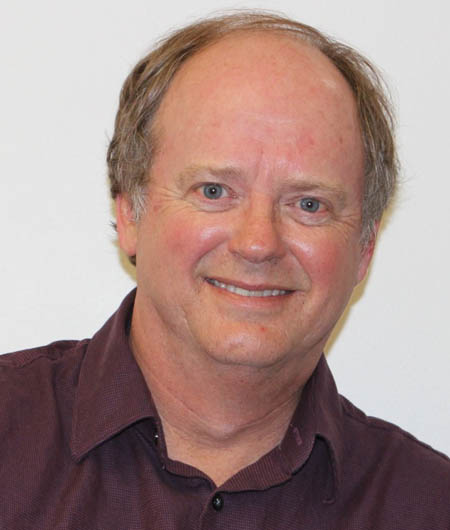home | internet service | web design | business directory | bulletin board | advertise | events calendar | contact | weather | cams

|
Efficiencies Paid Back Starting Wednesday (Dec.3) at 4:30 p.m., customers of Winthrop’s Okanogan County Electric Cooperative (OCEC) will be able to call the co-op any time day or night 365 days a year to get answers about their bills or to place orders.  Okanogan County Electric Cooperative general manager David Gottula. Photo by Solveig Torvik Okanogan County Electric Cooperative general manager David Gottula. Photo by Solveig TorvikUntil 8 a.m. each morning, those calls will be answered in Austin, Minnesota, by the Cooperative Response Center, a cooperative now owned in part by OCEC. The center was created to serve rural electric cooperatives, according to OCEC general manager David Gottula. During any after-office hours outages when customers call the co-op to report losses of power, the center in Minnesota “will dispatch our crews,” said Gottula. “It should be a lot better response during outages,” he added. “They’re used to handling outages.” Previously the co-op’s answering service was in the Tri-Cities, he said, but it did not offer the customer services to be provided by the center in Minnesota. OCEC is also a member of a second cooperative, a billing service in Alabama, SEDC data service, said Gottula. SEDC developed the customer service software that OCEC uses and processes and mails the bills members receive. SEDC will now also process the bill payments. Checks mailed in Winthrop to pay electric bills used to go down to the Wenatchee distribution center, then back to Winthrop, said Gottula. Now those checks—and those mailed elsewhere—go to Alabama to the SEDC cooperative membership data organization created to serve rural electric co-ops, he added. The co-op is keeping its payment drop-box outside for members who want to use it, or they can pay their bills in person during office hours. The changes are among efforts to expand customer service while keeping costs down, said Gottula, who was hired in October 2011. While the cost of the new, expanded answering service in Minnesota is higher, he said, savings achieved by replacing a full-time office employee with a part-time one helped pay for that service. Using the billing service in Alabama is less expensive than handling billing locally, he added. In the last two years, three full-time OCEC positions have been eliminated through attrition, said Gottula, a former electrical distribution engineer. As another example of “looking for efficiencies” in operation, Gottula told Methow Grist that rather than replace full-time engineering manager Don Clutter, that workload is being re-distributed in-house. On the upcoming Mazama project, for example, “I’ll do the technical stuff” and line engineer Deanna Melton “will do the implementation,” he said. As a result of its improved financial situation, the OCEC, which is a non-profit entity, will more than double the capital credit payments to its members this month, said Gottula. Last year the co-op returned a total of $66,000 to members, calculated at 1.4 percent of the margin—income above operating expenses. This year the co-op will pay out $140,000 to customers who were members in 1993 and 1994, calculated on 3 percent of margin, said Gottula. At the end of October 2013, the OCEC was showing a margin of $541,000 for the year, said Gottula.The paybacks of capital credits to members for a given year are not issued until 20 years after they are paid in, he said, and paybacks differ for each of the co-op’s 2,800 customers because they are based on how much they paid the OCEC for service. The co-op, established in 1947, has now paid back all funds due to members in capital credits up until 1993, he explained. Since 1993, members have paid in $5.2 million worth of capital credits that are to be gradually dispersed back to the members over the next 20 years, said Gottula. At its December 16 meeting the OCEC board is scheduled to take up the issue of whether members who are 80 years old or more can be given a discounted lump sum payout of their capital credits, said Gottula. The board is awaiting a legal opinion on whether rural electric cooperatives are allowed to treat some of its members differently than others, according to Gottula. Gottula urged former customers who have moved away from the valley to keep their changes of address updated with the OCEC so capital credit payments they are due can be sent to them. “They’re entitled to their share of the margin,” he said. The board normally meets at 5 p.m. every fourth Monday at 93 West Chewuch Road. The meetings are open to the membership. 12/2/2013 Comments
|